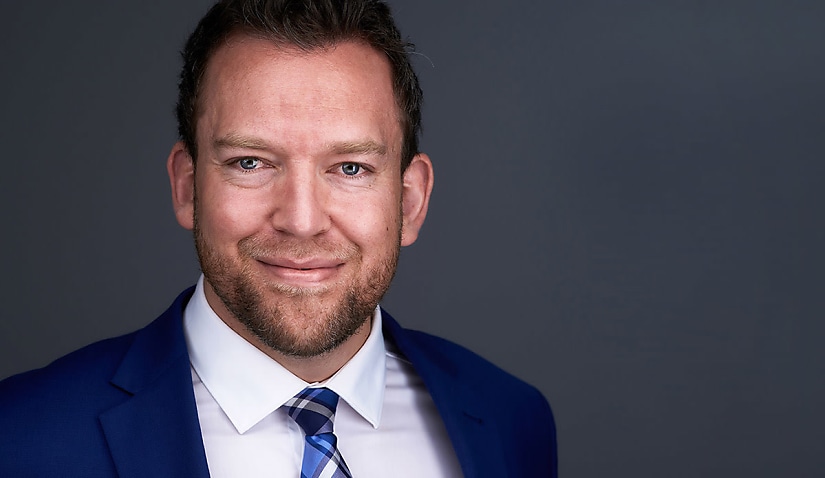Powered by MOMENTUM MEDIA
After enduring harrowing abuse, many survivors of family violence often find themselves stuck in a less-than-ideal financial situation whilst their abuser is still able to access their superannuation — a legal loophole this lawyer is actively campaigning against.

Andrew Carpenter is a senior associate at Websters Lawyers based in South Australia — and recently, on the Boutique Lawyer Show, he spoke about the legal loophole of hiding assets in superannuation and the impact he’s seen this have on victim-survivors.
“Usually, the taxpayer effectively indemnifies offenders by enabling the survivors to access victims of crime or social security, PBS, taxpayer-funded and treatments when the offenders usually get away scot-free. That was mainly because a lot of offenders don’t have assets, but anyone that’s worked since 1985 has superannuation.
“Now, in 2000 or 2001 in South Australia, the longest-serving magistrate, Peter Liddy, was sentenced to, for the longest sentence that time, for some horrific crimes against children. And before he was sentenced, he was able to capitulate his assets and disperse multimillion dollars’ worth of assets. We saw that with Maurice Van Ryn in Bega Cheese, in 2016, where he was able to hide a lot of money in super. And I got to the point where I was sick and tired of telling survivors that there’s nothing available to them, even though their offenders have large super or have transferred large amounts of money to other people,” he explained.
“And I thought it’s about time someone has to do something about it. Luckily for me, I found out in 2017 that the Liberal government was going to be making a change to that to enable survivors of childhood sexual assault to access the offender’s superannuation. Now, the former minister Kelly O’Dwyer did a press conference on the steps of Parliament House in Canberra, saying they were doing that. Since 2017, nothing’s happened.”
Mr Winokur has since started campaigning to try and implement change within the space — and said that the issue is one that needs more attention, especially as offenders can often get short sentences whilst victim’s lives are ruined.
“I’ve come across many survivors that will never work, that never have worked, that will never have a family, never have relationships, and you’re effectively taken away a child’s innocence for some sexual gratification. Now, a lot of these offenders are people in positions of power, whether they’re teachers, priests, bosses, all walks of life they come across. But a lot of them use their controlling ways against survivors to commit these crimes,” he explained.
“And then when you try to sue them, that narcissistic control continues because they’re effectively saying, ‘I’m telling you how much I’m going to give you. If you don’t like that, I’ll just go bankrupt. I’ll live on my super, and you’ll get nothing.’ So, it’s really just shifting the balance of power back into the survivor’s hands. And I don’t think the general taxpayer wishes to continue to indemnify these sexual offenders for their crimes, or especially when there are some assets available for distribution from their own superannuation accounts.”
This loophole is also one that means victims of family violence experience further trauma trying to deal with the financial ramifications of their abuse — and rarely get the full justice they deserve.
“If someone is unable to work because of something that happened to them, the victims of crime payments aren’t anywhere near enough to compensate them. It’s a bigger hurt for the survivors; what then they see their offenders if they leave jail? Normally their offenders are able to go out, use their superannuation, buy a house, live a comfortable life, all while survivors tend to be stuck in government housing and living pay cheque to pay cheque,” Mr Carpenter added.
“The way that these survivors can get justice is to restore some equity in their life by at least compensating them for the horrible crimes they’ve endured and preventing offenders from living the rest of their life comfortably without the need for going on the public system like many survivors do.”
More to come.
The transcript of this podcast episode was slightly edited for publishing purposes. To listen to the full conversation with Andrew Carpenter, click below:

Lauren is a journalist at Lawyers Weekly and graduated with a Bachelor of Journalism from Macleay College. Prior to joining Lawyers Weekly, she worked as a trade journalist for media and travel industry publications and Travel Weekly. Originally born in England, Lauren enjoys trying new bars and restaurants, attending music festivals and travelling. She is also a keen snowboarder and pre-pandemic, spent a season living in a French ski resort.